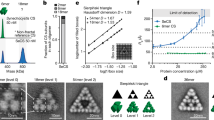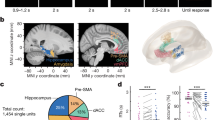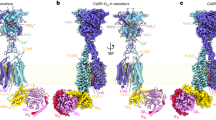Abstract
ALTHOUGH there is now good evidence that cyclic AMP is a mediator of positive inotropic effects of catecholamines in the heart, the details of the metabolism of this nucleotide in the intact myocardial cells are still unknown. It has been shown that the intracellular concentration of cyclic AMP oscillates during each contraction cycle of the frog heart1,2. But little information is available for the influence of frequency of stimulation, which regulates myocardial contractility in physiological conditions3, on the intracellular level of cyclic AMP. We therefore investigated the relationship between cyclic AMP level and the strength of contraction of the ventricular myocardium during the induction of different contractile states by changing frequency of stimulation. In order to analyse the influence of frequency of stimulation on cyclic AMP level, the effects of changes in concentrations of extracellular calcium ions or of D600, which is thought to inhibit the influx of calcium ions through the myocardial cell membrane4, were also investigated. It was found that the intracellular level of cyclic AMP and the contractile force of isolated rabbit papillary muscles had a reciprocal relationship during induction of different contractile states by changing frequencies of stimulation. The influence of frequency was simulated by reduction of the extracellular calcium ions or by D600.
This is a preview of subscription content, access via your institution
Access options
Subscribe to this journal
Receive 51 print issues and online access
$199.00 per year
only $3.90 per issue
Buy this article
- Purchase on Springer Link
- Instant access to full article PDF
Prices may be subject to local taxes which are calculated during checkout
Similar content being viewed by others
References
Brooker, G., Science, 182, 933–934 (1973).
Wollenberger, A., Babskii, E. B., Krause, E.-G., Genz, S., Blohm, D., and Bogdanova, E. V., Biochem. biophys. Res. Commun., 55, 446–452 (1973).
Koch-Weser, J., and Blinks, J. R., Pharmac. Rev., 15, 601–652 (1963).
Fleckenstein, A., Arzneimittel-Forsch., 22, 2019–2028 (1972).
Schümann, H. J., Endoh, M., and Brodde, O. E., Naunyn-Schmiedebergs Arch. exp. Path. Pharmak., 289, 291–302 (1975).
Gilman, A. G., Proc. natn. Acad. Sci. U.S.A., 67, 305–312 (1970).
Schwabe, U., and Ebert, R., Naunyn-Schmieclebergs Arch. exp. Path. Pharmak., 274, 287–298 (1972).
Winegrad, S., and Shanes, A. M., J. gen. Physiol., 45, 371–394 (1962).
Cheung, W. Y., and Williamson, J. R., Nature, 207, 979–981 (1965).
Teo, T. S., and Wang, J. H., J. biol. Chem., 248, 5950–5955 (1973).
Tada, M., Kirchberger, M. A., Iorio, J.-A. M., and Katz, A. M., Circulation Res., 36, 8–17 (1975).
Kakiuchi, S., and Yamazaki, R., Proc. Jap. Acad., 46, 387–392 (1970).
Schultz, J., J. Neurochem., 24, 495–501 (1975).
Author information
Authors and Affiliations
Rights and permissions
About this article
Cite this article
ENDOH, M., BRODDE, O., REINHARDT, D. et al. Frequency dependence of cyclic AMP in mammalian myocardium. Nature 261, 716–717 (1976). https://doi.org/10.1038/261716a0
Received:
Accepted:
Published:
Issue Date:
DOI: https://doi.org/10.1038/261716a0
Comments
By submitting a comment you agree to abide by our Terms and Community Guidelines. If you find something abusive or that does not comply with our terms or guidelines please flag it as inappropriate.



